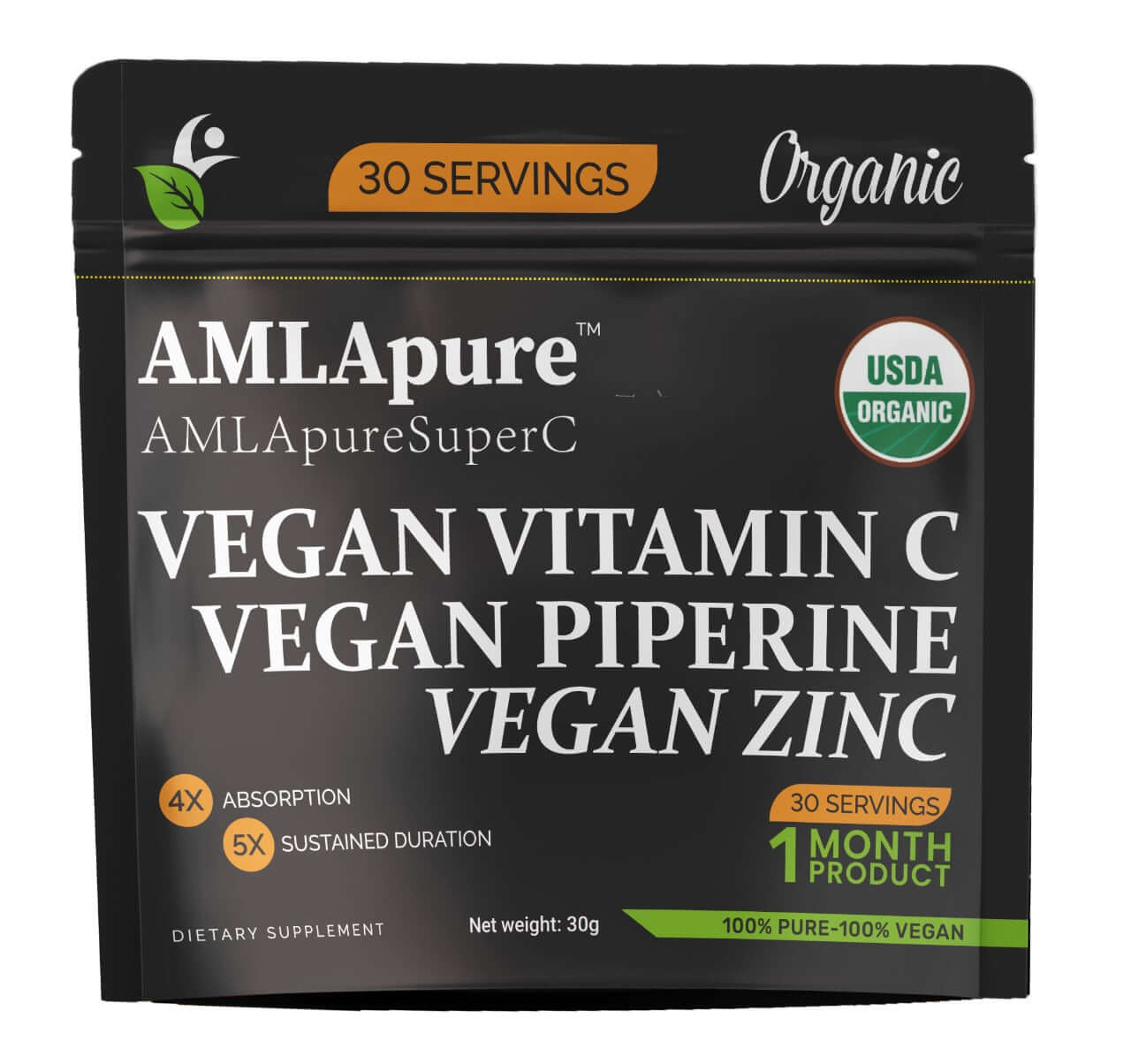Intestinal Worms
AMLApureSuperC
Orange Label AMLA made with real fruit
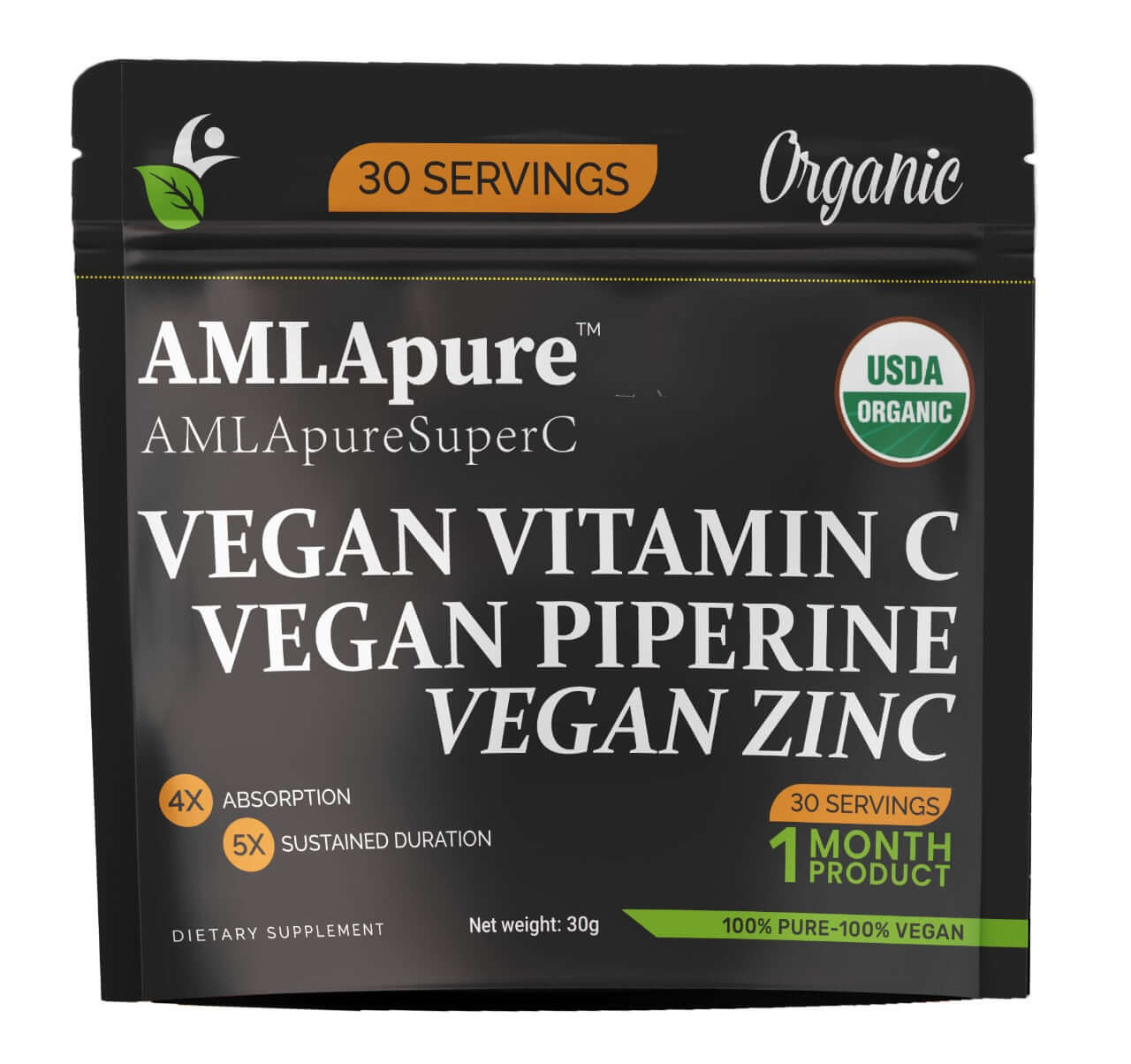
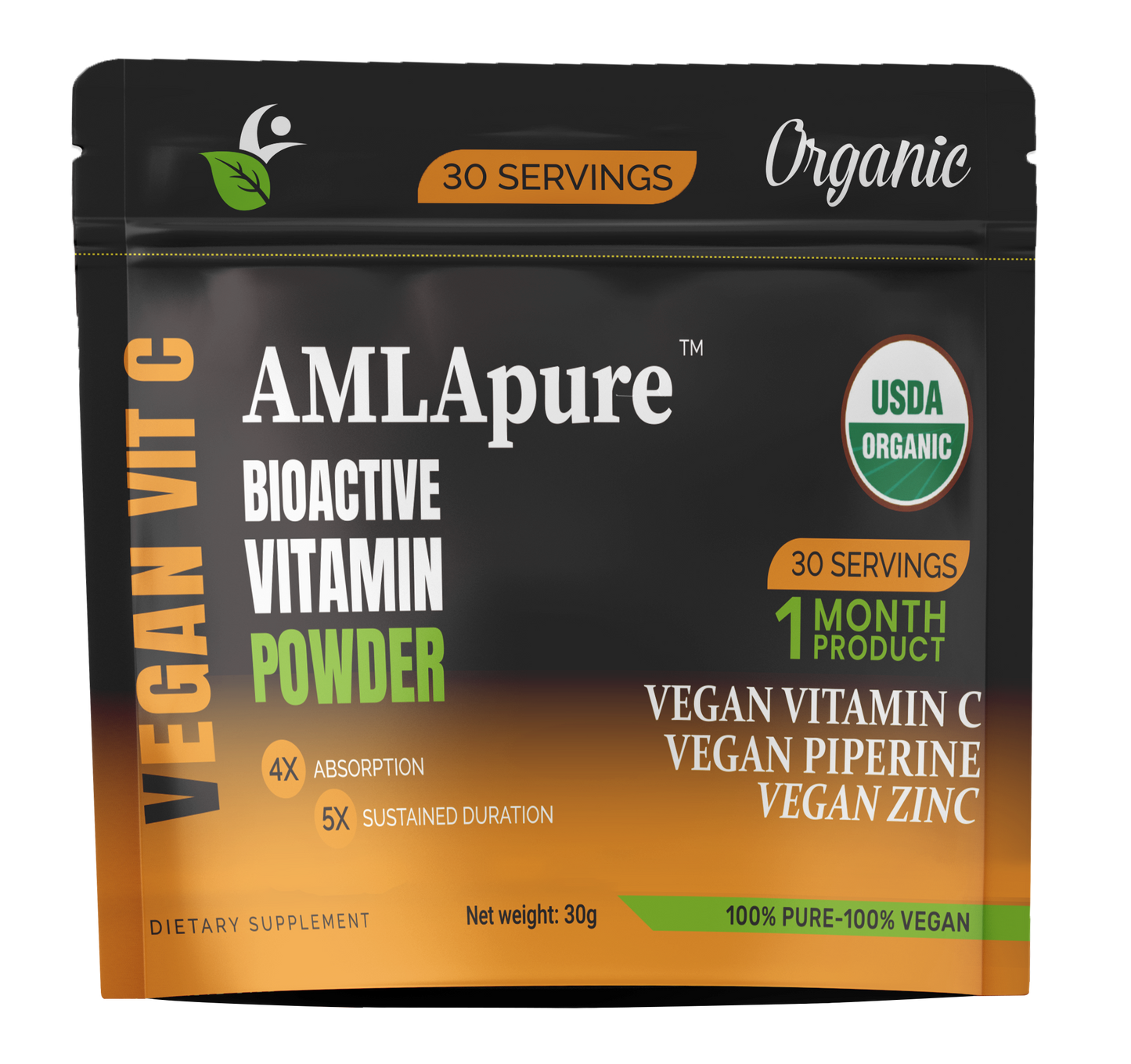
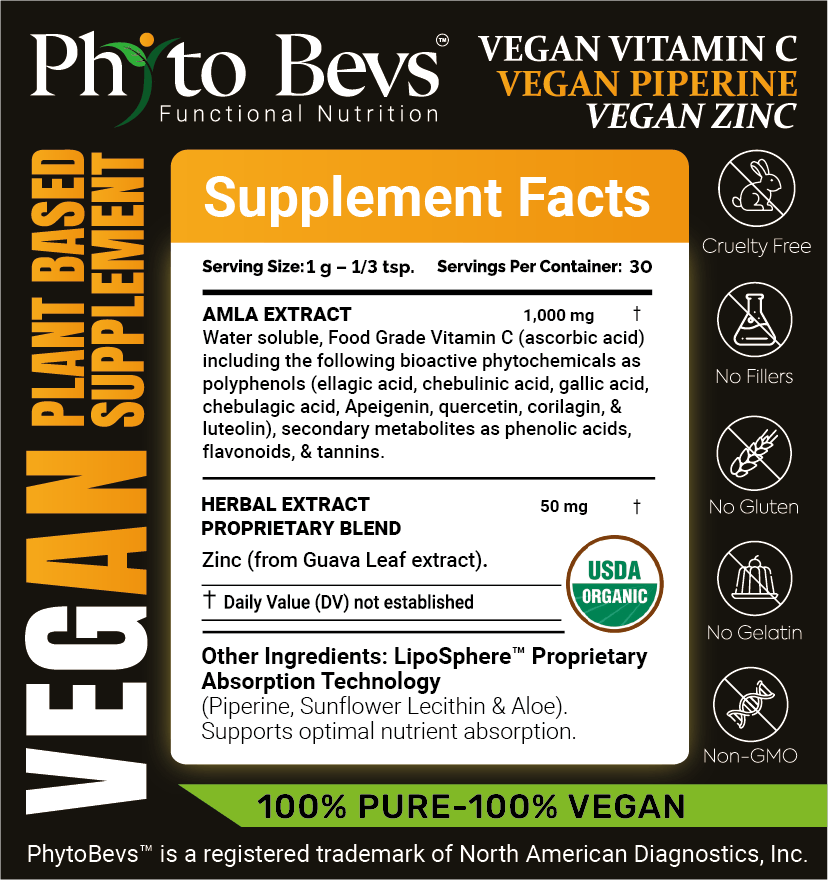
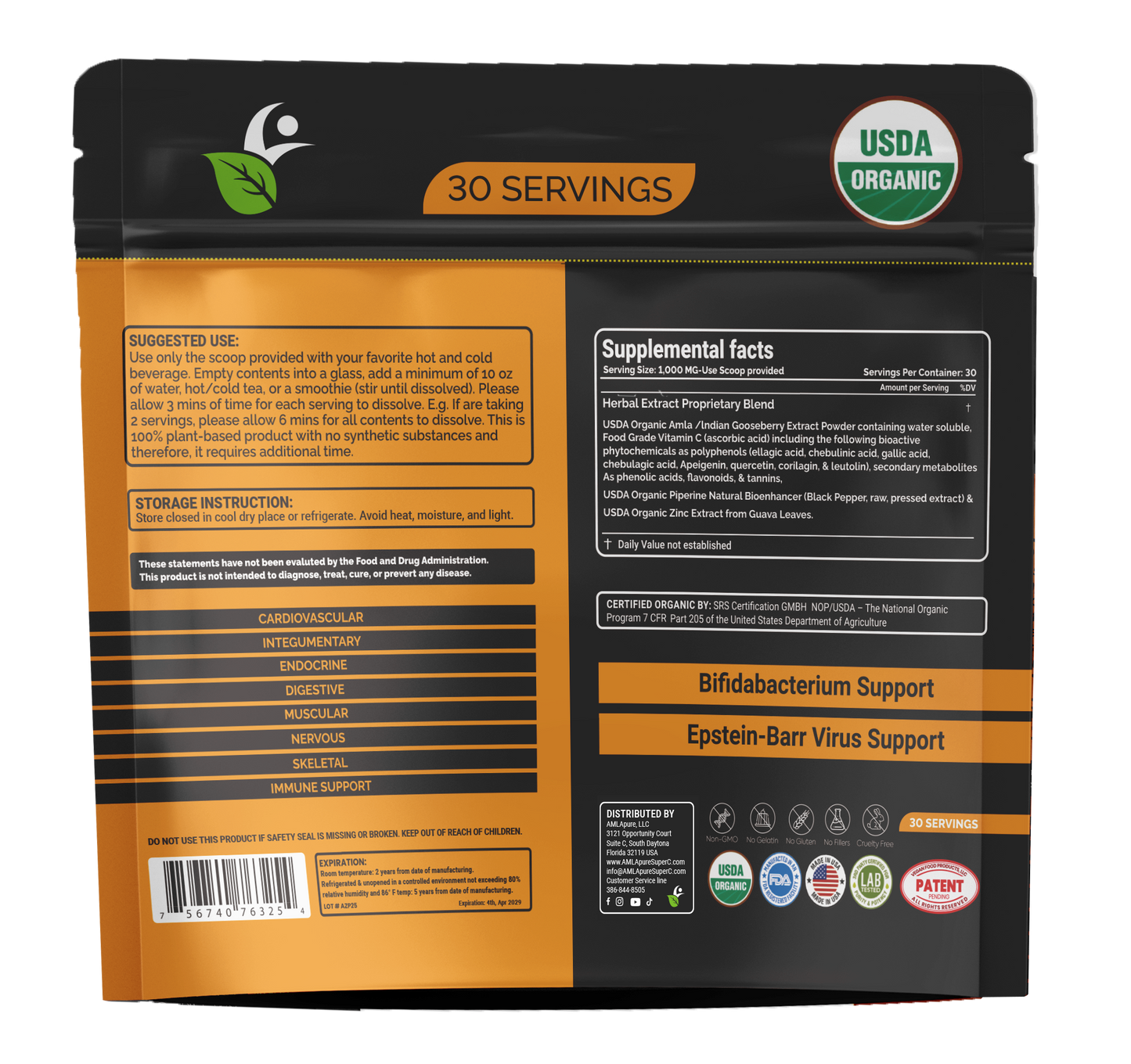
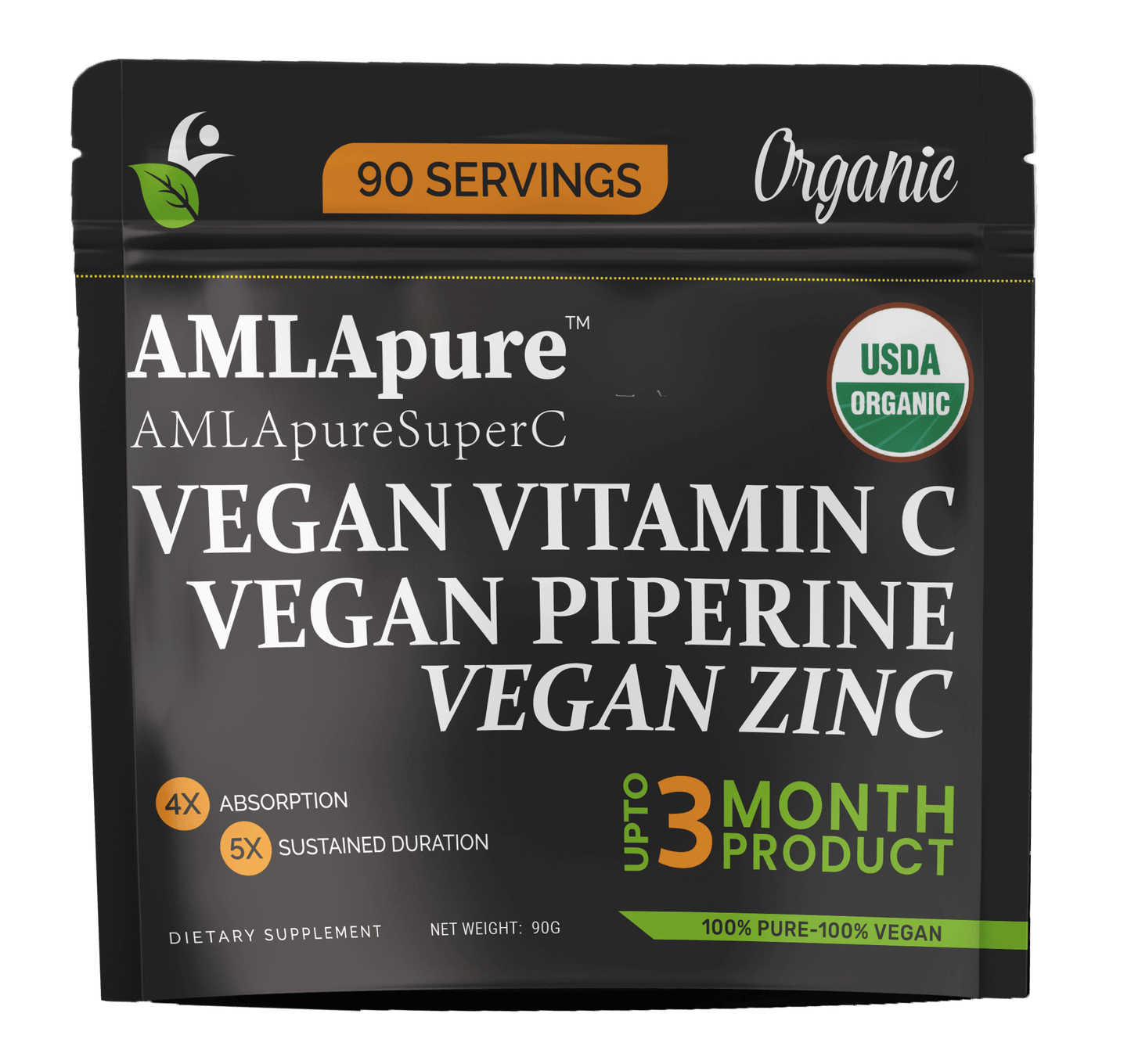
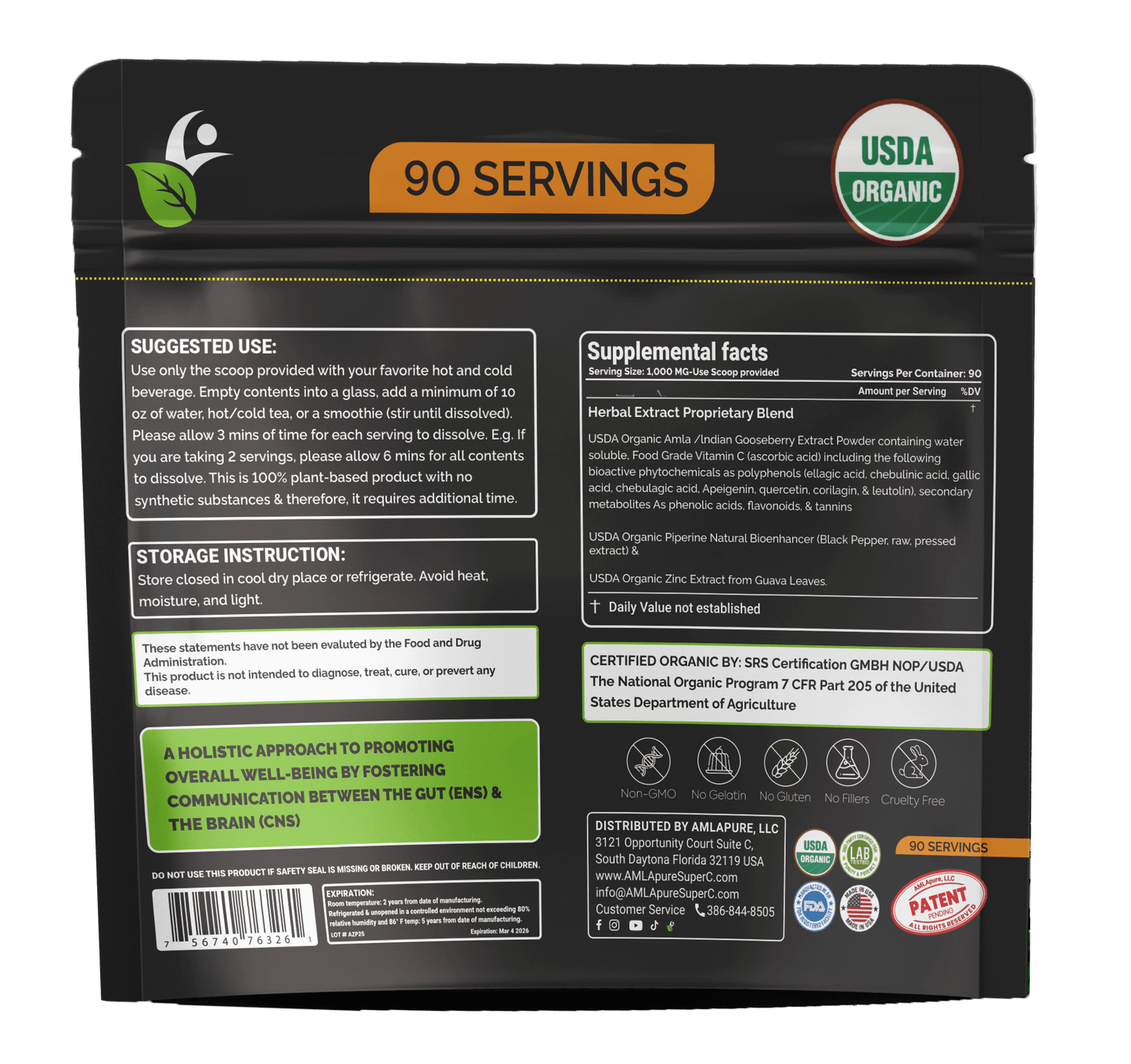
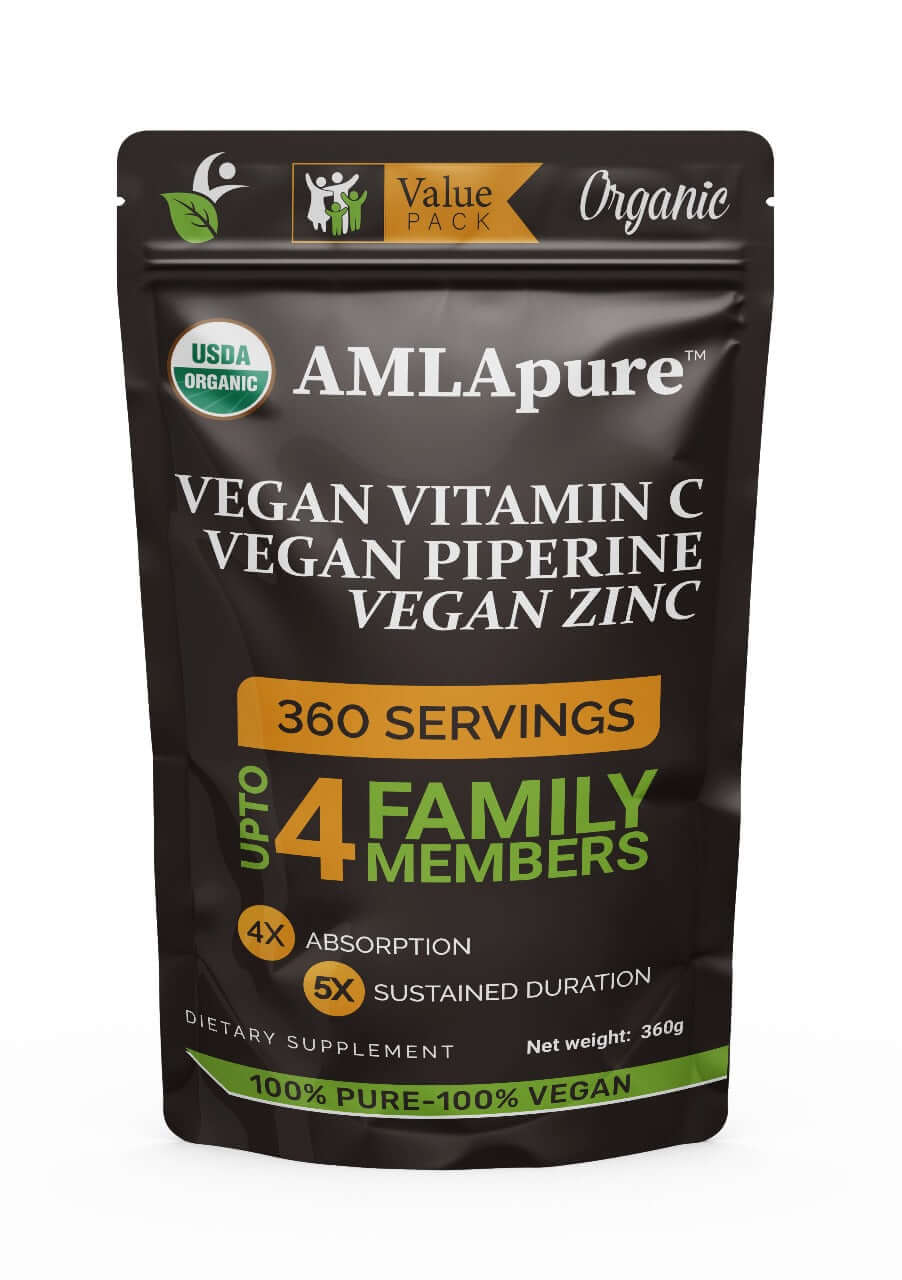
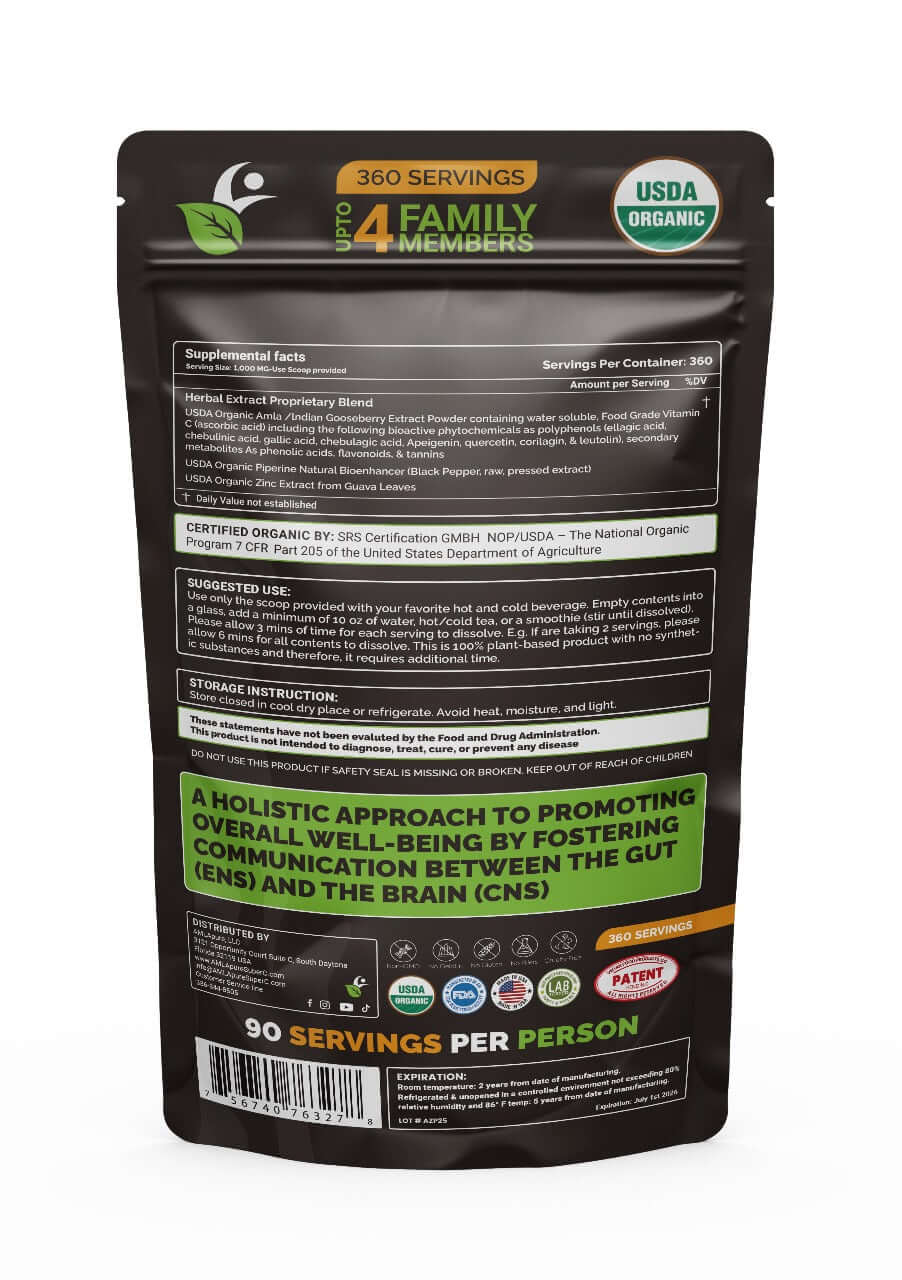
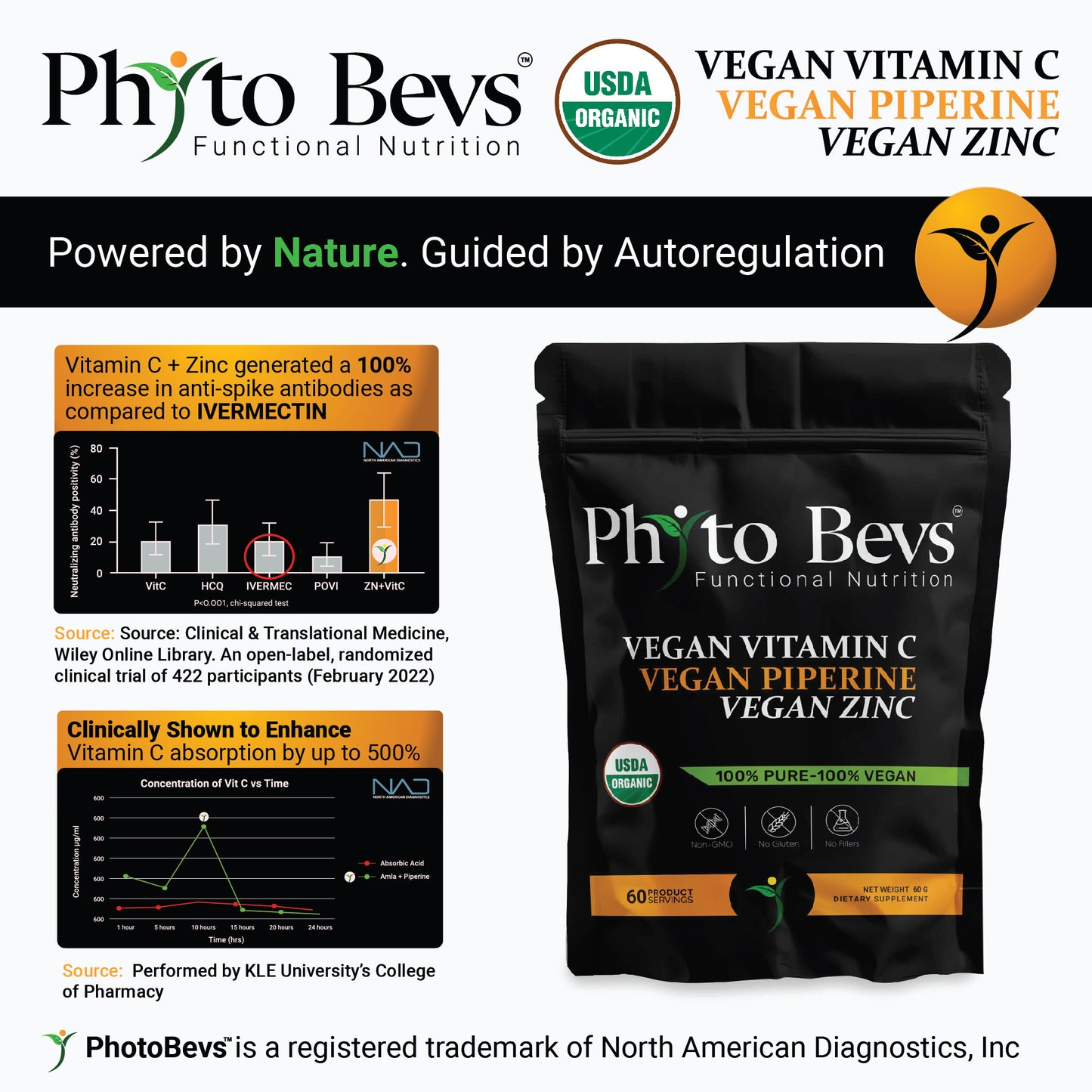
Collapsible content
Description
Orange label AMLA pure ™
Vegan Vitamin C - USDA Organic - Immune Support & More………
A Superfood 100% Derived from Wholefoods - Scientifically Engineered
Orange Label AMLA pure™ is a pure, non-synthetic, full spectrum, and multi-faceted superfood that provides a wealth of natural antioxidants to support your overall health and wellness. It's the perfect immune supplement to incorporate into your daily lifestyle.
By incorporating a diverse range of bioactive compounds and phytochemicals, our product aims to enhance your daily health routine naturally. Each ingredient in Orange Label AMLA pure™ – USDA Organic AMLA powder, USDA Organic Guava leaf, and USDA Organic Piperine – has been carefully selected for its high levels of free radical scavenging and antioxidant content, as well as its rich bioactive compounds and phytochemicals.
Ingredients
- USDA Organic AMLA powder
- USDA Organic Guava leaf extraction
- USDA Organic Piperine (black pepper) for bio enhancement
AMLA’s rich and diverse range of bioactive compounds and phytochemicals are the unique and naturally occurring attributes that form a central component of AMLA’s high-revving antioxidant activity. These include unique polyphenols (ellagic acid, chebulinic acid, gallic acid, chebulagic acid, apigenin, quercetin, corilagin, and luteolin) and the following bioactive phytochemicals: phenolic acids, flavonoids, tannins, and phenolics.
The Remarkable Benefits of AMLA Powder: An Educational Insight
Amla, also known as Indian Gooseberry, is a potent superfood revered in Ayurvedic medicine for centuries. Amla powder, derived from dried and ground Amla fruits, is packed with essential nutrients and bioactive compounds that offer a wide range of benefits. Here are some of the remarkable advantages of incorporating Amla powder into your daily health routine:
Rich Source of Vitamin C:
- Amla powder is a natural powerhouse of vitamin C, containing significantly more than oranges. This nutrient is crucial for maintaining overall health and supporting the immune system.
Powerful Antioxidant Properties:
- Amla is loaded with antioxidants that help neutralize free radicals, promoting cellular health and protecting against oxidative stress.
Supports Healthy Digestion:
- Amla powder aids in digestion by stimulating gastric juices and supporting regular bowel movements, contributing to a healthy digestive system.
Enhances Skin Health:
- The high vitamin C content in Amla powder supports collagen production, promoting healthy, glowing skin and reducing the appearance of aging.
Promotes Hair Health:
- Amla has been traditionally used to strengthen hair follicles, promote hair growth, and prevent premature graying, making it a popular ingredient in hair care routines.
Boosts Immune Function:
- With its high levels of vitamin C and other antioxidants, Amla powder supports the immune system, helping the body defend against common ailments.
Supports Cardiovascular Health:
- Amla powder may contribute to heart health by supporting healthy cholesterol levels and promoting overall cardiovascular function.
Helps Maintain Healthy Blood Sugar Levels:
- Some studies suggest that Amla powder can help maintain healthy blood sugar levels, making it a beneficial addition to a balanced diet.
Aids in Detoxification:
- Amla powder supports the body’s natural detoxification processes, helping to cleanse and rejuvenate the body.
Supports Vision Health:
- The carotene content in Amla contributes to eye health, potentially improving vision and reducing the risk of age-related eye conditions.
Enhances Nutrient Absorption:
- Amla powder can enhance the absorption of other nutrients, making it an excellent companion to a nutrient-rich diet.
- Natural Anti-Inflammatory:
- Amla contains anti-inflammatory properties that can help soothe the body and reduce the impact of inflammatory conditions.
How to Incorporate Amla Powder into Your Routine
- Smoothies: Add a teaspoon of Amla powder to your favorite smoothie for a nutrient boost.
- Teas and Juices: Stir Amla powder into herbal teas or fresh juices.
- Baking: Incorporate Amla powder into baked goods for an added health benefit.
- Sprinkling: Sprinkle Amla powder over cereals, yogurt, or salads.
Availability
- 1 month supply - 30 servings
- 3 months supply - 90 servings
- 12 months supply - 365 servings
The Science
Vitamin C & Zinc
Research underscores the essential role of vitamin C in supporting immune health. A study by Hoffman-La Roche highlighted the importance of vitamin C and zinc in maintaining a healthy immune system. The study compared the effects of vitamin C and zinc to Ivermectin, demonstrating that vitamin C, particularly when paired with zinc, plays a significant role in supporting the body’s natural defenses.
Vitamin C in the form of AMLA & Piperine (black pepper)
Further research, including peer-reviewed in vitro and in vivo clinical trials, has shown that Amla (Indian Gooseberry) combined with Piperine (a natural compound found in black pepper) exhibits higher antioxidant activity compared to traditional vitamin C (ascorbic acid). These studies found that Amla with Piperine has a 25% higher Oxygen Radical Absorbance Capacity (ORAC) value. Additionally, Amla was absorbed 400% quicker and maintained a 500% higher concentration in the bloodstream for up to 10 hours after dosing, compared to ascorbic acid.
These findings highlight the potential benefits of incorporating a natural combination of vitamin C, Zinc and Black pepper into your daily health regimen for enhanced antioxidant support and overall wellness.
These statements have not been evaluated by the Food and Drug Administration. This product is not intended to diagnose, treat, cure, or prevent any disease and these statements do not claim to diagnose, mitigate, treat, cure, or prevent a specific disease or class of diseases.
Essential nutrients & medicines (dietary & biologic) are impacted from entering the bloodstream and continuing onto the cellular pathways & organs. The constant interference & redirection of critical nutrients leads to many unexplainable symptoms,
including, but not limited to Brain Fog, Constipation, Chronic Pain, & GI Upset
-
People “accepts” and “learn to live with”, the symptoms as “life”
Probiotics, by themselves are not enough -
Vitamin C also
improves gut barrier function to reduce the absorption of endotoxin (LPS), and
its consequent signaling via hepatic TLR4. Decreasing of LPS interrupts the
cycle of NFκB activation at the intestine and the liver which are inflammatory
mediators -
Vitamin C, also increases the levels of Bifidobacterium as compared to Placebo in
double blind studies
Useful Links
https://www.ncbi.nlm.nih.gov/pmc/articles/PMC6169970/
Anti-parasitic effect of vitamin C alone and in combination with benznidazole against Trypanosoma cruzi
https://www.cabdirect.org/cabdirect/abstract/19421402727 Intestinal parasites and vitamin C deficiency.
Recent Development of Probiotic Bifidobacteria for Treating Human Diseases https://pubmed.ncbi.nlm.nih.gov/36475828/
Vitamin C improves gut Bifidobacteria in humans
https://pubmed.ncbi.nlm.nih.gov/28643627/
Bifidobacteria and Their Health-Promoting Effects
https://pubmed.ncbi.nlm.nih.gov/31487552/
Bifidobacteria: A probable missing puzzle piece in the pathogenesis of multiple sclerosis

